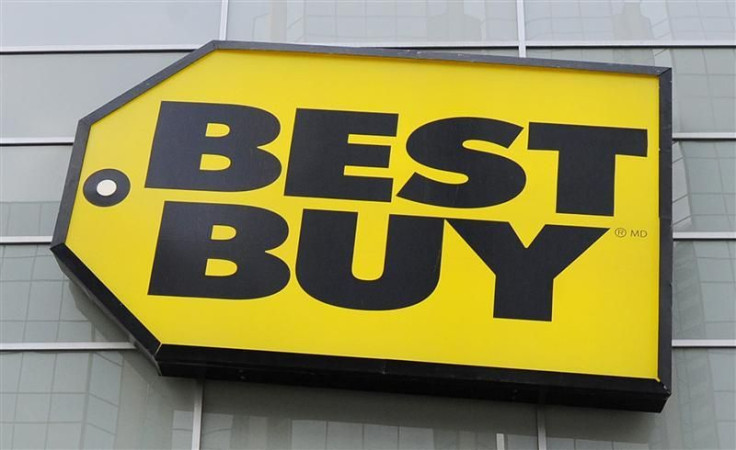Best Buy's Troubles: A Smaller Strategy For Saving The King Of The Big Box Store

Layoffs, store closures, massive loss of earnings, and the departure of its CEO -- nothing is going right with the world's largest consumer-electronics specialty retailer.
Just six years ago, Best Buy Co. Inc. (NYSE: BBY) commanded more than $50 a share; these days a share costs less than half. The company reported net earnings of $1.4 billion in 2008; last year it lost $1.2 billion.
Some analysts are warning now that if the Richfield, Minn.-based electronics retail giant doesn't implement the right measures it won't be around much longer. And so far they have reacted coolly to the changes Best Buy has announced.
So what's the problem?
Chiefly, the big-box-store model is dying, and retail chains must reinvent themselves to compete with nimble e-commerce rivals by offering consumers something they can't get with a click of a mouse or swipe of a touchscreen device: localized, knowledgeable in-store customer service. And they must do this while keeping prices low and skating on thin profit margins.
Recognizing the depth of this challenge, Best Buy offered some answers last month. Following a dismal earnings report in the fourth quarter ended March 3 - the company lost $1.7 billion compared to a gain of $651 million in the same period the year before - then CEO Brian Dunn announced the closing of 50 stores (out of 1,100); $800 million in reduced operating costs in the next three years; and the debut of 100 smaller Best Buy Mobile outlets this year and 495 by 2016.
It was a good first step, but not nearly aggressive enough, said R.J. Hottovy, an analyst at investment research irm Morningstar.
In Hottovy's view, Best Buy's shift into smaller stores that focus on mobile devices amounts to a tactic, not a strategy.
Right now they're capitalizing on a trend in mobile devices, but I'm not sure how long that's going to last, said Morningstar's Hottovy.
YOUR SHOWROOM IS MY SHOWROOM
One reason Best Buy's large outlets are less profitable than they used to be is the nature of the competition. Online retailers like Amazon. Ebay and TigerDirect have a profound edge in that their operating costs are so much lower than because they don't need showrooms. Or more specifically: Best Buy's showrooms are also theirs. Many customers not only go to Best Buy to handle and compare gadgets, but with the advent of portable and easy Internet access they can literally purchase products from an e-tailer from right inside Best Buy's stores.
Specialty retailers that have managed to mostly overcome the online threat are generally regional chains with loyal customers and reputations for great service, qualities that could prove to be more difficult for an international chain like Best Buy to acquire. Fry's Electronics Inc. in California, Abt Electronics in Illinois and P.C. Richard & Son in New York fit this category.
Some retail analysts believe that Best Buy's only hope is to embrace the electronics store regional model by branding the planned smaller stores as premium venues, like Apple's retail network. In these shops, Best Buy would offer more individual attention to customers than is common in the typical big box outlet, particularly in helping people make purchasing decisions. And perhaps the slimmed down Best Buy stores would sell a greater number of higher-priced non-commodity items like audiophile equipment.
In these smaller outlets Best Buy could match Apple's Genius Bar repair and service centers with its own highly successful Geek Squad, one of the best known and most profitable parts of Best Buy's business. Meanwhile, the larger stores should gradually fade away, evolve into extinction, as Robin Lewis, vice president at Vantage Marketplace at Goldman Sachs, put it.
The Best Buy brand is not going to survive, added Lewis.
THE CEO SHUFFLE
While analysts are calling for a radical overhaul of Best Buy, the retailer appears to have a much more limited agenda in mind, a timidity that could change after the company picks a new CEO.
Just two weeks after announcing the restructuring plan last month Dunn resigned amidst a board investigation into alleged improprieties involving company resources and a female employee. The board of directors has acknowledged that it is investigating Dunn's personal conduct but has declined to comment further upon the case.
Best Buy spokesperson Ron Hutcheson said the board is looking at candidates for the top post both inside and outside the company. Until a new CEO is named, Mike Mikan, who has served on the company's board since 2008, will hold down the job, an interim move that disappointed some analysts.
They need someone who has a background in mobile and e-commerce if they're going to turn the company around, said Morningstar's Hottovy.
And Best Buy will need a leader who is willing to part with what worked in the past and create a far different business model for the company, a difficult transformation under any circumstances for most organizations.
Trouble is, Mikan has indicated that's not in the cards any time soon. In an email to employees recently, he wrote: I'm very pleased with the priorities that have been established to address many of the underlying challenges in our business. This work absolutely must continue.
If it does, some retail experts argue, Best Buy will only prove one thing: that like dinosaurs before it, it can't find a strategy to avoid vanishing.
© Copyright IBTimes 2024. All rights reserved.





















